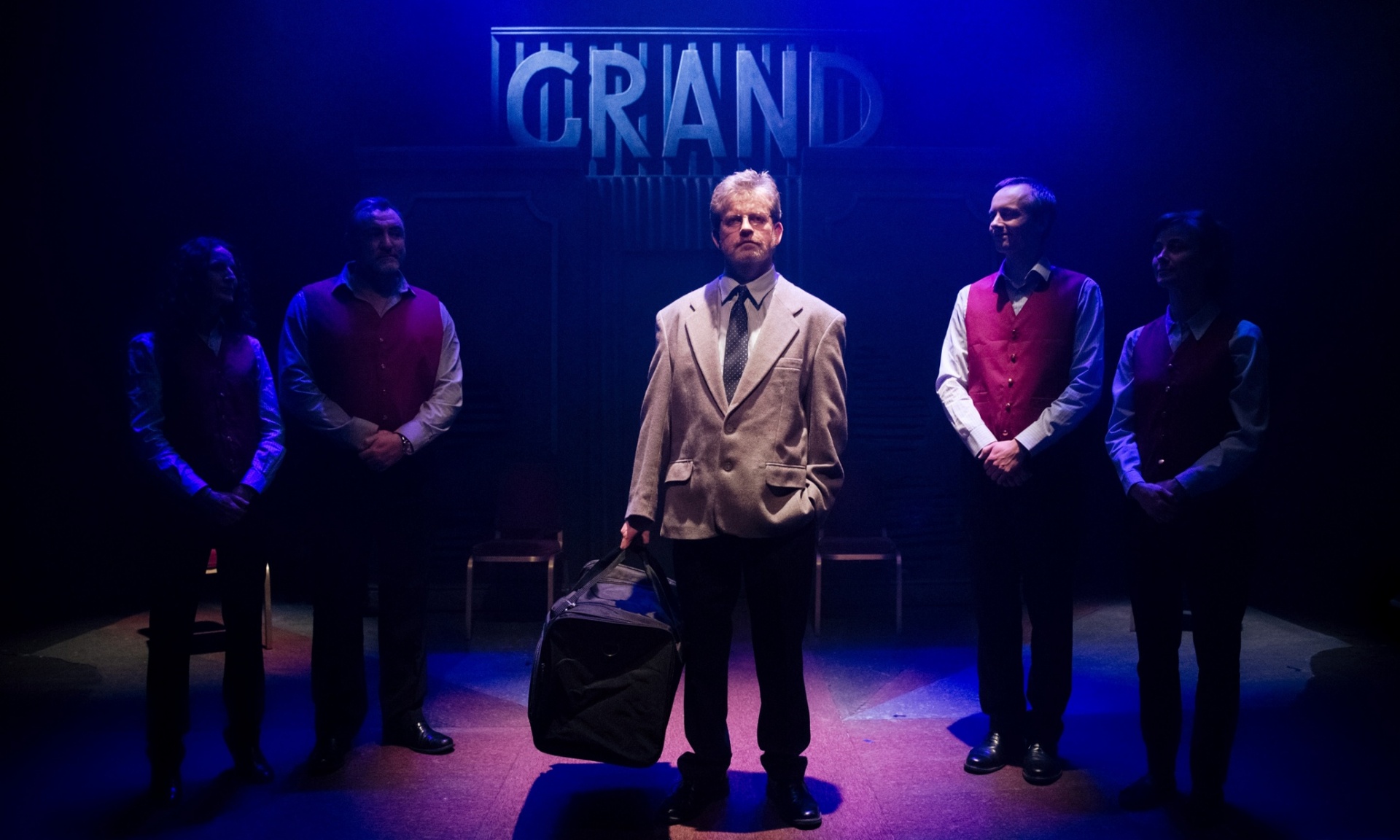In 1981 Margaret Thatcher’s government took an intransigent stance against Republicans in Northern Ireland, notably allowing ten men to starve themselves to death in Long Kesh prison. One inmate who just missed that unhappy episode was Patrick Magee, but the effects of a long and violent battle for independence led him to plant a bomb in a Brighton hotel. Magee, in a strong performance by Ruairi Conaghan, is the main character in this tightly observed new play by Julie Everton and Josie Melia, A Wildspark Theatre and The Cockpit co-production presented at Brighton Fringe after a two-week London run at the Cockpit Theatre.
We are introduced to a handful of characters integral to the story including Jo Berry (Rachel Blackman), whose father was killed in the attack. Short scenes set up the key relationships and propel the narrative. It’s non-linear and mixes movement with text on a stage bare but for chairs and the occasional table.
There are some laughs, a fine comic performance by Aoife McMahon as Stella, and some tears, with a heartrending burst of anguish from Beth Fitzgerald as Barbara Born Jones. There is some rather underpowered menace (Paul Mundell and Glenn Speers, more persuasive in other roles than as British cops.) We are taken swiftly to the point of Roy Walsh aka Patrick Magee leaving the bomb in hotel room 629 – and then boom.
Interestingly, the staging seems to parallel the period in which the play is set. There is certain 1980s quality to the ensemble and movement of actors around the stage, the sharply focused lighting (designed by David Blake), and the evocative soundscape by Stephen Wrigley – all of which plays out in front of a facade of the Grand Hotel, designed by Foxton. It’s a bit like Hull Truck under John Godber. Intended or not by the directorial team of Paul Hodson and Emma Roberts, it grounds it in time and place. The storytelling in this first half, despite some choreographic embellishments, is straightforward.
The second half concentrates on the meetings between Berry and Magee, sixteen years after the event. Theirs is a fractured and painful relationship, negotiating blame, acceptance, hurt and the idea of freedom. The text is almost verbatim in this encounter. As Berry, Rachel Blackman combines the innate self-righteousness of the ruling class (is it really every child’s right to have a grand-dad?) with her sincere sense of personal loss and vulnerability. There is less dramatic tension in this scene and the temperature drops somewhat, but the unlikely, and on-going, reconciliation between the pair is the heart of the piece.
Both protagonists engaged with the writers to create this play. Jo Berry has gone on to create Building Bridges For Peace, an international charity promoting reconciliation. Patrick Magee, now 63, often tours with her, a complicated and perhaps conflicted man. We are left to consider their lives together, the power-play and emotional shifts, the effects on their families and those around them. There is more to unpick here and a future story to be told. As it is, we are left as we began, with the bombed out façade of the Grand Hotel looming large…
The play is a keen reminder that when disagreement leads to open conflict, we need to work together with hope, not hate.

